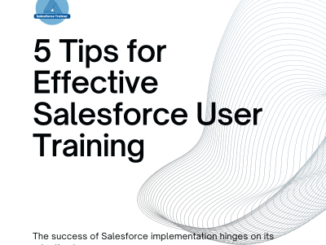Analytical thinking is a critical skill that empowers you to tackle complex challenges, make informed decisions, and drive success for your clients and teams. Enhancing your analytical thinking abilities can greatly impact your problem-solving capabilities and overall effectiveness. In this blog post, we will explore tips, tools, and guidance to help you develop and enhance your analytical thinking skills.
- Develop Curiosity and Inquisitiveness: Curiosity forms the foundation of analytical thinking. Probing open questions will help you get better answers. “The Power of Why” – a simple question that can lead to great success. Foster curiosity by following these practices:

- Ask probing questions: Challenge assumptions and dig deeper to gain a comprehensive understanding of the situation or problem.
- Seek multiple perspectives: Engage in discussions with diverse stakeholders to gather different viewpoints and insights.
- Stay informed: Stay updated on industry trends, technological advancements, and best practices in the Salesforce ecosystem.
- Gather and Analyze Data: Effective analysis requires gathering and interpreting relevant data. Consider the following strategies:
- Identify key data points: Determine the most critical information needed to address the problem or make an informed decision.
- Utilize Salesforce reports and dashboards: Leverage Salesforce’s reporting and analytics capabilities to access real-time data and generate insights.
- Analyze patterns and trends: Look for recurring themes or correlations within the data to identify underlying causes or opportunities.
- Use data visualization tools: Visualize data using tools like Tableau or Salesforce Einstein Analytics to gain a clearer understanding of trends and patterns.
- Break Down Complex Problems: Complex problems can be overwhelming, but breaking them down into smaller components makes them more manageable. A recurring theme, how can you break down a big challenge in bitesize chunks. Consider these approaches:
- Decompose the problem: Analyze the problem step by step, identifying the main components and their relationships.
- Identify root causes: Seek to understand the underlying causes of the problem rather than just addressing surface-level symptoms.
- Apply critical thinking: Evaluate information objectively, question assumptions, and consider alternative perspectives and solutions.
- Enhance Critical Thinking Skills: Critical thinking is closely intertwined with analytical thinking. Strengthen your critical thinking abilities with these practices:
- Evaluate information: Assess the credibility and reliability of the information you encounter, considering the source, context, and biases.
- Apply logic and reasoning: Use logical reasoning to evaluate arguments, identify flaws, and draw valid conclusions.
- Embrace intellectual humility: Be open to revising your opinions and beliefs based on new evidence or insights.
- Develop hypothesis-testing skills: Formulate hypotheses, gather evidence, and assess whether the evidence supports or disproves your hypotheses.
- Embrace Data-Driven Decision Making: Analytical thinking empowers you to make data-driven decisions. The power of data driven decisions is that you can present fact over personal interpretation and feelings. As long as you can trust the source of data, good analysis will help you make better decisions. Consider these strategies:
- Define decision criteria: Clearly outline the factors and metrics that will guide your decision-making process.
- Gather relevant data: Collect and analyze data that is directly related to the decision at hand.
- Weigh pros and cons: Evaluate the potential benefits and risks associated with each decision option.
- Document decision rationale: Record the thought process, data, and analysis behind your decision for future reference.
- Practice Continuous Learning and Improvement: Analytical thinking is a skill that can be developed and refined over time. Consider these habits to continuously improve:
- Seek feedback: Request input from colleagues, clients, or mentors to gain insights and identify areas for improvement.
- Reflect on past experiences: Analyze your previous problem-solving and decision-making processes, identifying strengths and areas for growth.
- Engage in professional development: Attend training sessions, webinars, or workshops that focus on analytical thinking and problem-solving.

Enhancing your analytical thinking skills is crucial for success as a Salesforce Expert. By developing curiosity, gathering and analyzing data, breaking down complex problems, strengthening critical thinking, embracing data-driven decision making, and practicing continuous learning, you can elevate your problem-solving abilities and contribute to the growth and innovation of the Salesforce ecosystem.
As a Salesforce expert, you should possess a range of soft skills that complement your technical expertise. I have created a range of blogs to cover some important soft skills for a Salesforce expert. The topics you can expect to be covered in this range:
– Mastering Effective Communication
– Mastering Problem-solving
– Thriving Through Adaptability
– Cultivating Empathy
– Mastering Time management
– Mastering Collaboration
– Developing Analytical thinking
– Elevating Customer service
– The Power of Continuous learning





Be the first to comment